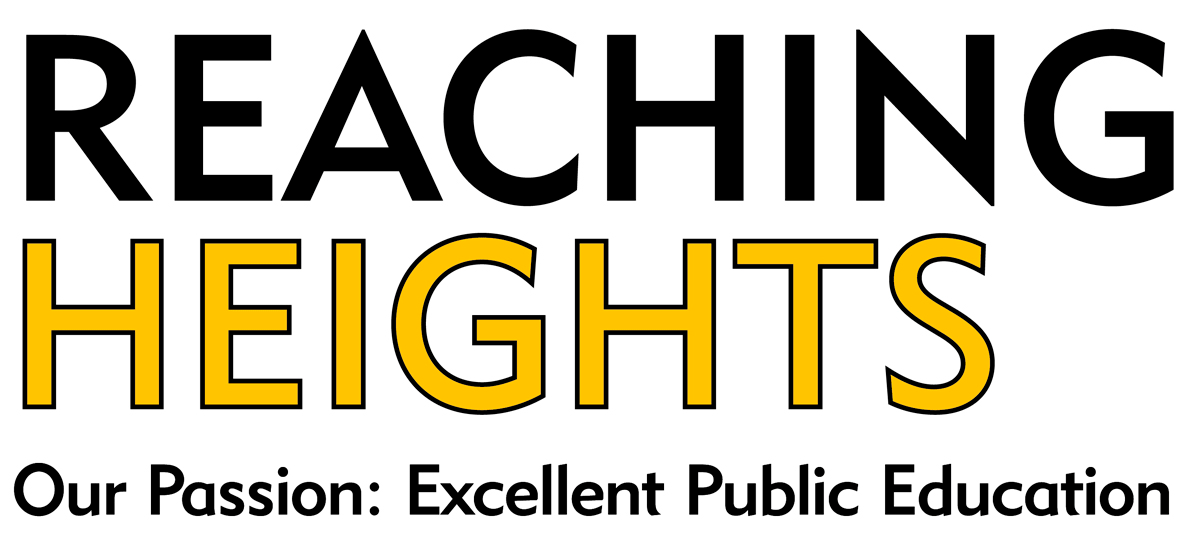A Week In The Life of Heights High Teacher, Nathan Williams
- Krissy Gallagher
- Jun 16, 2021
- 3 min read
There are morning meetings on Wednesdays and Fridays. And after-school meetings every Thursday. Once a month for the Equity Task Force and Reaching Heights Board of Directors, twice a month for the Minority Student Achievement Network, weekly for the Building Leadership Team and Teachers’ Union. There are sporting events to attend, especially for the students who may have no one else there to cheer them on. There’s planning and grading. And then there’s the actual teaching.
Such is a week in the life of Heights High history teacher Nathan Williams. But he wouldn't want it any other way.
“It started in the 5th grade,” said Mr. Williams of his career aspirations. “Because I realized that being a teacher, you get to talk all the time and people listen to you.”
But when he enrolled at Cleveland State for his freshman year of college, he initially chose another talking career: broadcast journalism. “I only studied that for one year, but it’s helpful in what I do now,” which he often calls “edu-tainment: You’ve got to keep their attention.”
After his first year, Mr. Williams transferred to Kent State University where he graduated with a History degree before earning his Masters in Urban Secondary Education back at CSU.
He’s been in the Cleveland Heights-University Heights schools for fifteen years, choosing to live in the community and enroll his children in the schools. “It’s a beautiful thing to work where you live,” he says.
Mr. Williams started off in a transition program for struggling middle schoolers but has spent most of his career teaching 9th grade Honors World History and African-American History. He now has two periods each day of 11th grade Government and three of the semester-long social studies elective, which he prefers to call Pan-American Studies because “African-American history starts with slavery but Black history or Pan-African history start with Africa.”
This course is his passion and embodies so much of his life’s work. “I’m trying to give my kids roots. African-American students can go through all 12 years of education and know very little about their history and culture.” He believes the course is relevant for white students too. “In today’s world, we all need a greater appreciation of Black history.”
His students agree. Senior Amanda Long said that Mr. Williams’ class “really should be required for everyone. It should just be part of world history, not a separate course.”
As powerful as his instruction can be, Mr. Williams’ reach goes far beyond the classroom. A member of the Equity Task Force, the Reaching Heights board, the newly formed Superintendent’s Communication Equity Committee, a Union Steward and a former softball coach, he believes that there’s so much more to this job than teaching for a 50-minute period. But the most important thing he does is form relationships with students.
“I teach so much more than social studies. I’m a de facto dad, a de facto big brother, definitely a psychiatrist, definitely a motivator. Sometimes I’m the most consistent thing in their lives.”
He always keeps his classroom door open, allowing students to stay during their lunch periods or to pop in and out throughout the day. It’s clear the students respect and admire this man, who doesn’t feel all that much older than them. “He’s cool and fun and funny,” said Amanda.
“He’ll give you his time out of school, stop by to have a conversation and keep the connection genuine,” said senior Marshawn Chaney-Robinson. “This is the class you come to school for.”
Mr. Williams admits that his average week can be taxing. “My boys will say, ‘Are you ready to play with us or do you have homework?’ But I definitely think it’s worth it.”
His students do too. Senior Taylor Cody, who has had Mr. Williams as a teacher, an MSAN advisor and a softball coach, said, “He’s definitely big on creating a sense of family at Heights; being in his class or at an MSAN meeting, he makes you feel like you belong. As high school students most of the guidance we get is about ‘doing the right thing,’ but Mr. Williams pushes you to be open about your identity, the things you love, and the impact you can have on the future.”
She went on to say that he “understands that sometimes we don’t see the potential we truly have until we’re pushed beyond our comfort zone, or exposed to the monumental things our ancestors have done throughout history.”
Mr. Williams recognizes the outsized role he plays in his students’ lives. “Sometimes I’ll have kids call me five or six years after graduating to ask for advice.” He will always, always make time for them.
“The real reason why I teach is because at some point my dream became about helping someone else reach their dream.”





Comments